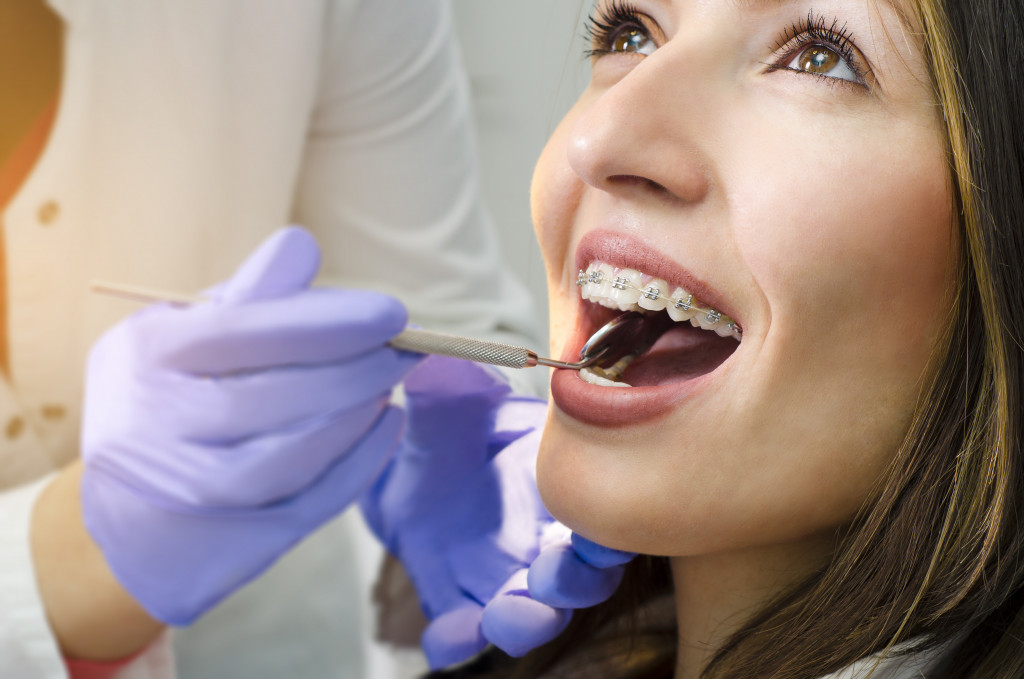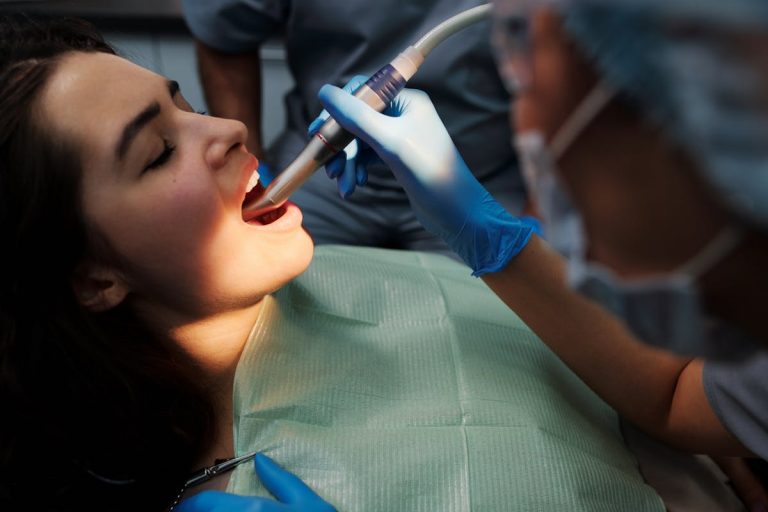- Regular dental check-ups and X-rays can detect early signs of tooth decay, preventing further complications.
- Dental fillings, crowns, and implants restore function and aesthetics in decayed teeth, improving overall oral health.
- Root canal treatment can save severely decayed teeth, preventing the need for extraction and preserving oral health.
- Good oral hygiene practices, including brushing and flossing, are crucial in preventing tooth decay.
- Dietary changes and regular dental cleanings can help reduce tooth decay risk, maintaining healthy teeth and gums.
Preventing dental decay is fundamental to maintaining good oral health. Unfortunately, teeth can sometimes decay despite careful brushing and flossing, leading to painful, unappealing cavities.
Left untreated, tooth decay can cause various oral health problems, including gum disease, tooth loss, and abscesses. As decay progresses, it can cause patients pain, swelling, and difficulty chewing or speaking.
Some people may develop sensitivity to hot or cold drinks or feel self-conscious about their appearance due to cavities. Early identification and treatment of decay are essential to prevent such problems.
This article will explore strategies for fixing a decayed tooth and the preventive measures to help you avoid this problem.
Dental Examination and Diagnosis
Dental examinations and diagnoses are the first steps in treating decayed teeth. Your dentist will examine each tooth visually and gently probe the surrounding gums for sensitivity.
Regular Dental Check-ups
Regular dental check-ups are vital for maintaining good oral health. Routinely dentists can monitor and detect signs of tooth decay at an early stage, often before patients notice any symptoms.
Dentists can also provide essential information about good oral hygiene and diet recommendations for optimal oral health during regular dental check-ups.
X-rays and Dental Imaging for Accurate Diagnosis
X-rays and other dental imaging techniques enable dentists to identify tooth decay at an early stage before it leads to cavities or spreading infections. These imaging tools offer more timely and accurate decay diagnoses than visual dental examinations alone.
Further, these techniques can help the dentist visualize the extent of decay or other dental problems requiring specialized treatment.
Consulting a Dentist for Professional Evaluation
If you experience tooth pain or feel like a tooth is decaying, seeing your dentist as soon as possible is essential. Even if you’re not experiencing symptoms but have not seen a dentist recently, scheduling an appointment is necessary to avoid future dental issues.

Dental Treatment Options for Decayed Teeth
Decayed teeth are common among many people, but unfortunately, few realize their impact on oral health. These dental strategies can help fix decayed teeth and promote better oral health.
Dental Fillings
Dental fillings are one of the most common treatments for decayed teeth. During the procedure, the decayed portion of the tooth is carefully eliminated, and the resulting cavity is filled with a dental filling material.
Commonly used materials include composite resin, amalgam, or ceramic. This process restores the tooth’s structure and enhances its aesthetic appearance. Dental fillings can help restore the shape and function of the decayed tooth and prevent further infection.
Dental Crowns
Dental crowns are another effective solution for decayed teeth. Crowns are custom-made tooth-shaped caps that cover the entire tooth, protecting it from further damage.
The crown material can vary, but the most common are porcelain, ceramic, and metal alloys. Dental crowns can help restore the tooth’s aesthetics and function, improving oral health.
Dental Implants
Dental implants are an excellent solution for severely decayed teeth that require extraction. The procedure involves surgically implanting a replacement tooth root made of titanium, which acts as an anchor for the dental crown. Dental implants can help restore the function and aesthetics of the decayed tooth and prevent bone loss and further tooth decay.
Root Canal Treatment
Root canal treatment is a more invasive dental procedure recommended for severely decayed teeth that can’t be saved using other treatments. During the procedure, the dentist removes the infected pulp, cleans the root canal, and fills it with a dental filling material. Root canal treatment can help save a severely decayed tooth from extraction, thus preserving oral health.
Preventive Measures for Dental Health
Preventing decay is possible with adequate preventive measures.
Practicing Good Oral Hygiene: Brushing and Flossing Techniques
Maintaining good oral hygiene is critical to preventing tooth decay. Brushing your teeth at least twice a day with fluoride toothpaste and flossing once a day help to remove bacteria that cause plaque, which causes tooth decay.
Dentists suggest brushing using gentle circular motions for at least two minutes. With proper techniques, patients can enhance plaque removal and prevent cavities.
Dietary Recommendations for Reducing Tooth Decay Risk
Eating a balanced diet and avoiding sugary foods and drinks can help prevent tooth decay. When you consume food or drinks containing sugar, the bacteria in your mouth feast on it, resulting in acid production that gradually erodes your tooth enamel.
This erosion can cause the development of dental cavities. Dentists recommend drinking water and milk instead of soda and juice to reduce the risk of tooth decay.
Regular Dental Cleanings: Preventing Future Decay
Regular cleanings help to remove plaque, keeping your teeth clean and healthy. Dental cleanings are essential even if you brush and floss regularly. This crucial preventive measure can help prevent decay’s onset and the development of future dental issues.

Tooth decay is preventable with proper oral care and diligent check-ups by a trusted dentist. Maintaining oral hygiene, a healthy diet, and regular dental check-ups are critical in preventing tooth decay and avoiding recurring dental issues.
Keep in mind that professional dental care is necessary to ensure early detection and prompt treatment of decay and other dental problems. Take control of your oral health today.






